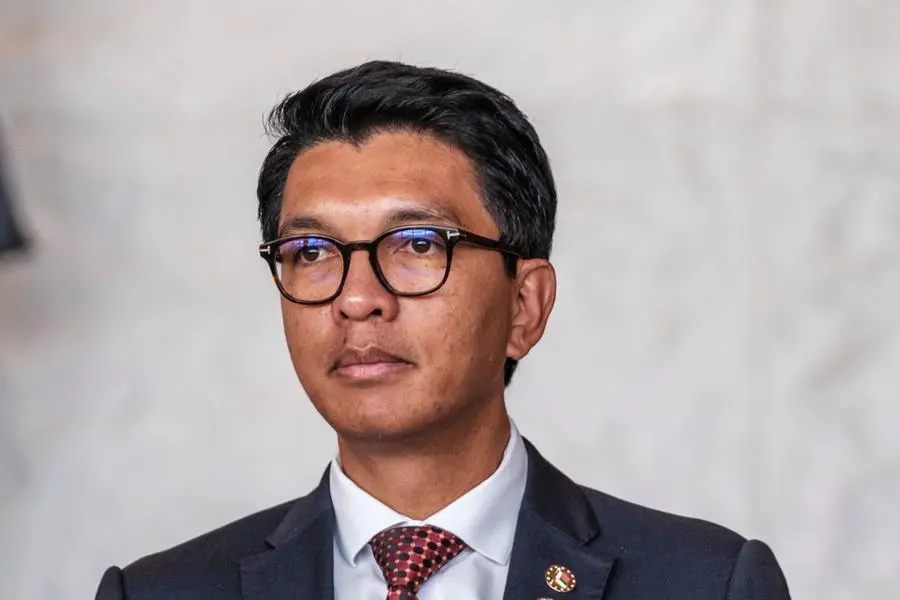PHOTO
The European Union and United States on Friday led international calls for Andry Rajoelina to ease political "tensions" in Madagascar after his presidential election win was confirmed by a top court.
The constitutional court rejected opposition complaints of fraud and said Rajoelina secured 59 percent of the vote in the November 16 vote.
The 49-year-old former party organiser is now clear to start a second straight term without the need for a run-off.
Rajoelina called his victory "enormous" and said he would not accept criticism that was "destructive" for the country.
But 11 opposition candidates have already said they will not recognise the results, alleging the election was "riddled with irregularities". Ten boycotted the vote in protest.
And after the court validated the result, ambassadors from the EU, US and other major donor countries expressed concern at the "tensions and incidents" that marked the campaign.
They said in a statement that Rajoelina must "take steps to restore confidence conducive to dialogue".
The envoys reaffirmed their "repeated recommendations" for legal and electoral reforms ahead of future votes.
Army backing
After the court ruling, Rajoelina said: "You must respect the choice of the people."
"I will accept all the criticism that goes toward the construction but not the destruction of the country," he declared.
Rajoelina said his first measures would aim to "take care of the people".
"It is my main mission -- to be at the side of the poorest."
The president said he would accelerate measures to allow new industries to be established.
He said there would be some government changes "but you don't change a winning team".
Political tensions have been running high in the island state for months.
Two army colonels were charged this week with inciting a mutiny before the election.
Army chief William Michel Andriamasimanana later said the military was committed to respecting the election result.
Siteny Randrianasoloniaiko, who maintained his candidacy, filed a legal challenge after the vote, seeking to cancel it.
He alleged vote buying and irregularities in the counting.
But the court rejected the appeal and even annulled some of his votes.
Elections in Madagascar have rarely been held without a dispute.
The latest crisis erupted in June, when media reports revealed that Rajoelina had acquired French nationality, triggering calls for him to be disqualified from running for president.
Under local law, the president should have lost his Madagascan nationality as a result, and with it, the ability to lead the country, his opponents said.
Rajoelina denied trying to conceal his passport move, saying he became French to allow his children to study abroad.
Before the election, opposition candidates held almost daily protests in the capital, Antananarivo.
The demonstrations, which drew few people, were regularly dispersed with tear gas.
Rajoelina first took power in 2009 when a previous president was forced out by a coup.
After not running in the 2013 vote due to international pressure, he won an election in 2018.
He has since held the reins in a country that remains among the poorest in the world despite vast natural resources.
Some 80 percent of the 28 million population live on less than $2 a day.




















